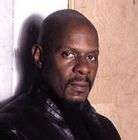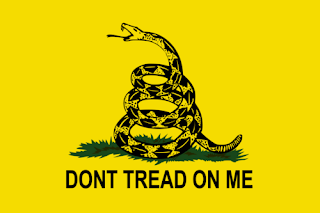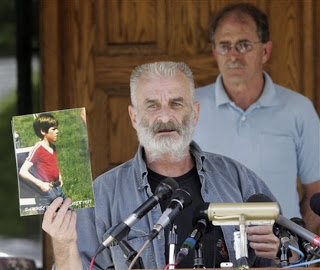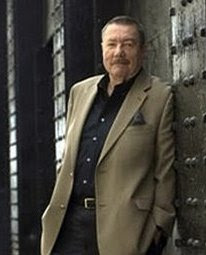Monday, January 18, 2010
Hurting People For a Living

Pure, distilled badness : Unlike agents of state coercion, Hawk never preyed on the weak and helpless.
I don’t like him. He hurts people for a living.
Only people who’ve hurt others, or who haven’t kept a promise.
Spenser explains Hawk’s code of ethics to his inamorata, Susan Silverman
For neither the first nor last time I find myself lamenting the fact that those employed by government typically aren’t as moral as Hawk, the fearsome muscle-and-gun specialist created by novelist Robert Parker (and memorably brought to life on screen by Avery Brooks).
Singularly capable when it came to inflicting injury on other people, Hawk employed that gift for commendably narrow purposes: If you hurt others for whom he was responsible, or attempted to, he would hurt you; if you reneged on a loan made by someone who employed him, Hawk would inflict the necessary duress until the debt had been satisfied.
While he was honest and — in the estimation of those who knew him — honorable, Hawk wasn’t entirely laudatory, particularly in his choice of employers. But he wasn’t a predator; he didn’t target the weak or helpless.
Hawk was a violent man, but he exercised violence only to deter or punish aggression and fraud.
If you chose not to get involved with the kind of people who employed him, Hawk — for all his tightly coiled ferocity and potential for lethal violence — was no threat at all. Think of the principle symbolized by the snake found on the Gadsen Flag given life in the form of an uber-slick urban enforcer so palpably deadly he’d make Shaft soil his underoos, and you’ve got Hawk.
Although he was frequently employed by unsavory people, Hawk was immeasurably more moral than those who presume to rule us, and the government they operate at our expense on their behalf. This is why he displayed nothing but wary contempt toward the government, especially those given the task of enforcing its laws.

Government, we are told, exists to protect us against anarchic violence that threatens life, liberty and property.
As Papa Hemingway might reply: Isn’t it pretty to think so?
In practice the government ruling us is always and everywhere the single largest source of lethal violence and most acute threat of the same.
In order to find one’s self on the receiving end of the kind of violence Hawk embodied, one has to make a specific set of bad choices involving contracts — beginning with the inexcusably foolish choice to enter into such agreements with the kind of people who would hire Hawk as a debt collector. To an extent, then, Hawk’s victims were volunteers.
However, any of us can experience state-inflicted violence at any time as a punishment for doing literally nothing, or by refusing to be bound by “contracts” arranged by other people in transactions to which he was not a party.
A perfectly infuriating illustration of the former — an innocent person being assaulted by state-employed agents of violence as punishment for doing nothing — took place at the Jets-Chargers game yesterday (January 17).
Many who have seen this clip pointed out that the partisan Chargers fans defended the admittedly obnoxious Jets fan after he was seized by a squad of tax-feeders.
What is most noteworthy about this brief clip was the harassment, intimidation and apparent arrest of the most outspoken critic of the police assault. This was done because the individual in question had the presence of mind and apparent strength of character to object when an annoying but harmless man needlessly became the victim of officially sanctioned violence.
When an armed police officer says “Let’s go outside” while placing hands on someone and shoving him in the direction of the exit, this constitutes what people in official costumes call an “arrest,” and refusing to cooperate constitutes what such people call the supposed crime of “resisting arrest.”
No, the specific phrase “you’re under arrest” wasn’t spoken, but it doesn’t have to be: Any time someone wearing the habiliments of the coercive caste detains, restrains, or redirects the progress of a member of the productive class, an “arrest” has taken place. Police were given permission to do this to you at their own discretion — whether or not you’ve actually inflicted an injury upon anyone else — by people whom you’ve most likely never met and wouldn’t care to know.
What if the gentleman in San Diego who was escorted from his seat to “talk” with a police officer had offered the following reply to the officer’s invitation: “No, thanks — if you want to `talk’ we can do it right here, in the seat I’ve paid for, on my terms rather than yours”?
What if he had reacted to the officer’s presumptuous (and illegal) gesture of placing hands on him to escort him from the area by knocking the hands away and saying, “You don’t have permission to touch me — keep your hands off!”
There’s little reason to doubt that either of those reactions would have resulted in an immediate escalation of aggressive violence by the police officer and his comrades, who would then file a “cover charge” against the victim (most likely “resisting arrest” or “disorderly conduct”).
Amid the ugliness of that incident could be seen evidence of a small but welcome change in public attitudes toward state “authority”: The Chargers fans, doubtless aggravated by the taunting they endured by a Jets fan as their home team went down to defeat, criticized the police for their needless display of authoritarian violence.
Granted, their reaction (with the exception of the insistent protests of the fan who was “invited” outside) was far too subdued. But even this somewhat timid and torpid resistance is a miraculous improvement over the bovine docility most Americans have displayed as the garrison state has taken shape around us.
Were it not for my principled opposition to mob violence, I’d be tempted to think it would be a healthy development if American sports fans get in touch with their inner Soccer Hooligans next time police needlessly rough up a spectator at a sporting event:
The case of New Hampshire resident Ed and Elaine Brown illustrates the second way innocent people regularly find themselves on the receiving end of the state’s criminal violence — that is, refusing to be bound by “contracts” made by other people.
Federal Judge Gorge Z. Singal recently decreed that the 67-year-old Ed Brown will spend the rest of his life in prison. This isn’t a punishment for anything Brown did to anybody, but rather for “tax evasion” — that is, refusing to surrender his honestly earned money to a criminal government — and “stockpiling weapons and explosives” — that is, taking reasonable precautions to defend himself and his wife when heavily armed stormtroopers in the employ of the Regime surrounded their “compound” — that is, what honest and rational people call their “home.”
A reminder of sieges past: Randy Weaver, whose wife and son were murdered by the Feds, holds a picture of his slain son Samuel during a visit to the Brown home (aka “fortified compound”) in New Hampshire.
“I have no doubt in my mind that Mr. Brown would have killed multiple marshals if they hadn’t dealt with him so quickly,” insisted Singal as he imposed a 37-year prison sentence.
In fact, neither Ed nor his wife — whatever one thinks of their beliefs and the wisdom of the actions they undertook — threatened aggressive violence of any kind. Reasonable people have ample cause to suspect that if the couple hadn’t acquired the means to defend themselves by force, they may well have been slaughtered by the heroic paladins of public order.
U.S. Attorney John Kacavas referred to Brown as “a dangerously defiant individual … whose conduct posed a clear and imminent threat to the public and to law enforcement officers.” While it’s true that residents of Plainfield, New Hampshire grew weary of playing host to a horde of disreputable federal trigger-pullers, there’s no evidence to support the characterization of Brown — as opposed to his armed pursuers — as a “threat to the public.”
The real “poker tell” in Kacavas’s soundbite is the use of the expression “dangerously defiant.”
Ed Brown stole nothing, defrauded nobody, and posed no threat of aggressive violence. His “crime” — the act that made him “dangerous” — was his defiance.
Once again, it’s useful to compare Brown’s supposed crimes to the behavior of another “tax evader,” Timothy Geithner. Like Brown, Geithner refused to pay certain taxes. Like Brown, Geithner is now living at public expense, albeit in a well-compensated job as Treasury Secretary, rather than a federal prison.
Unlike Brown, Geithner has actually committed criminal offenses at the expense of innocent people. As an employee of the criminal syndicate called the Federal Reserve System, Geithner conspired to cover up evidence of a massive “backdoor bailout” using funds extorted from the taxpayers to compensate Goldman Sachs and foreign “counter-party” banks who had invested in fraudulent securities issued by AIG.
Here’s the system we’re sentenced to live under, concisely described:
Steal hundreds of billions from taxpayers, and you’re a public servant; refuse to permit your legitimately earned wealth to be stolen from you, and you’re a felon.
Geithner has been given a congressional subpoena to explain himself. Something tells me that he’s not exactly palsied with terror over the thought that Congress would actually do something to hold him accountable.
The street crime equivalent of Geithner’s actions would be something like this:
Hawk, pressed by an underworld figure to collect on a large number of bad debts, goes on a crime spree, shaking down shop owners and other small business owners in order to collect the necessary sum from people who had nothing to do with the transactions.
Geithner, of course, is a desk-bound nebbish who couldn’t conduct shakedowns of that sort in person. Owing to his principles, Hawk would never do something so contemptible. Yet we’re told by those who defend Geithner and his ilk that the system they’ve created is what protects us from common criminals, and that if that system were to collapse we’d be at the mercy of people like Hawk.
We should only be so lucky.
With sorrow for his passing and gratitude for his gifts I note the death of “Spenser” creator Robert Parker, who suffered a fatal heart attack at his desk while working on a new book. Mr. Parker was born on Constitution Day, 1932.
The natural heir to Raymond Chandler, Parker leaves behind a large body of work — more than sixty novels, including several fine westerns and two unfinished Spenser books. Each of his books was dedicated to his wife, Joan.
(Today’s essay is dedicated to Lysander Spooner on the occasion of his 202nd birthday.)
Be sure to join me for Pro Libertate Radio each weeknight from 6:00-7:00 PM Mountain Time on the Liberty News Radio Network.
Dum spiro, pugno!
Content retrieved from: http://freedominourtime.blogspot.com/2010/01/hurting-people-for-living.html.







